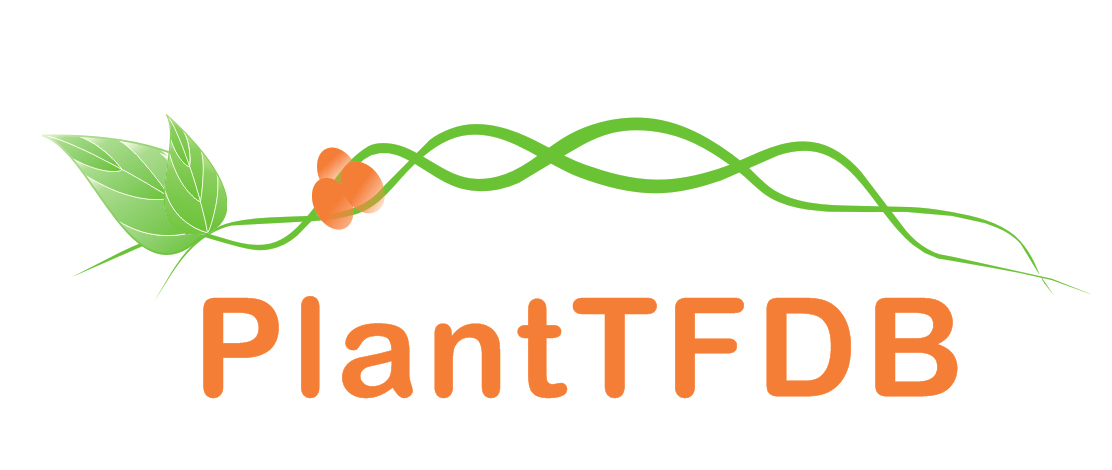 |
PlantRegMap/PlantTFDB v5.0
Plant Transcription
Factor Database
|
| Home TFext BLAST Prediction Download Help About Links PlantRegMap |
Transcription Factor Information
| Basic Information? help Back to Top | |||||||||
|---|---|---|---|---|---|---|---|---|---|
| TF ID | Lj4g3v2573590.1 | ||||||||
| Organism | |||||||||
| Taxonomic ID | |||||||||
| Taxonomic Lineage |
cellular organisms; Eukaryota; Viridiplantae; Streptophyta; Streptophytina; Embryophyta; Tracheophyta; Euphyllophyta; Spermatophyta; Magnoliophyta; Mesangiospermae; eudicotyledons; Gunneridae; Pentapetalae; rosids; fabids; Fabales; Fabaceae; Papilionoideae; Loteae; Lotus
|
||||||||
| Family | CAMTA | ||||||||
| Protein Properties | Length: 79aa MW: 9491.77 Da PI: 10.5255 | ||||||||
| Description | CAMTA family protein | ||||||||
| Gene Model |
|
||||||||
| Signature Domain? help Back to Top | |||||||
|---|---|---|---|---|---|---|---|
| No. | Domain | Score | E-value | Start | End | HMM Start | HMM End |
| 1 | CG-1 | 86.5 | 2.8e-27 | 15 | 79 | 2 | 65 |
CG-1 2 lke.kkrwlkneeiaaiLenfekheltlelktrpksgsliLynrkkvryfrkDGyswkkkkdgkt 65
++e ++rwlk+ e++ iL+n+ek+++++e++++p+sgsl+L+nr+++r+fr+DG+ w+kk+dg++
Lj4g3v2573590.1 15 YQEaQRRWLKPAEVMCILQNHEKYQFSQEPPQKPSSGSLFLFNRRVLRFFRRDGHAWRKKRDGRA 79
567699*********************************************************95 PP
| |||||||
| Protein Features ? help Back to Top | ||||||
|---|---|---|---|---|---|---|
| Database | Entry ID | E-value | Start | End | InterPro ID | Description |
| PROSITE profile | PS51437 | 40.8 | 11 | 79 | IPR005559 | CG-1 DNA-binding domain |
| SMART | SM01076 | 3.0E-9 | 14 | 79 | IPR005559 | CG-1 DNA-binding domain |
| Pfam | PF03859 | 2.4E-21 | 17 | 78 | IPR005559 | CG-1 DNA-binding domain |
| Gene Ontology ? help Back to Top | ||||||
|---|---|---|---|---|---|---|
| GO Term | GO Category | GO Description | ||||
| GO:0005634 | Cellular Component | nucleus | ||||
| GO:0003677 | Molecular Function | DNA binding | ||||
| Sequence ? help Back to Top |
|---|
| Protein Sequence Length: 79 aa Download sequence Send to blast |
MTPGAGHEYD INDLYQEAQR RWLKPAEVMC ILQNHEKYQF SQEPPQKPSS GSLFLFNRRV 60 LRFFRRDGHA WRKKRDGRA |
| Expression -- Description ? help Back to Top | ||||||
|---|---|---|---|---|---|---|
| Source | Description | |||||
| Uniprot | TISSUE SPECIFICITY: Expressed in roots, stems, leaves, flowers and siliques. {ECO:0000269|PubMed:12218065}. | |||||
| Functional Description ? help Back to Top | ||||||
|---|---|---|---|---|---|---|
| Source | Description | |||||
| UniProt | Transcription activator that binds to the DNA consensus sequence 5'-[ACG]CGCG[GTC]-3' (By similarity). Regulates transcriptional activity in response to calcium signals (Probable). Binds calmodulin in a calcium-dependent manner (By similarity). Involved together with CAMTA2 and CAMTA3 in the positive regulation of a general stress response (PubMed:25039701). {ECO:0000250|UniProtKB:Q8GSA7, ECO:0000269|PubMed:25039701, ECO:0000305|PubMed:11925432}. | |||||
| Cis-element ? help Back to Top | |
|---|---|
| Source | Link |
| PlantRegMap | Lj4g3v2573590.1 |
| Regulation -- Description ? help Back to Top | ||||||
|---|---|---|---|---|---|---|
| Source | Description | |||||
| UniProt | INDUCTION: By heat shock, UVB, salt, wounding, ethylene, methyl jasmonate, abscisic acid, H(2)O(2) and salicylic acid (PubMed:12218065). Induced by cold stress (PubMed:28351986). {ECO:0000269|PubMed:12218065, ECO:0000269|PubMed:28351986}. | |||||
| Regulation -- PlantRegMap ? help Back to Top | ||||||
|---|---|---|---|---|---|---|
| Source | Upstream Regulator | Target Gene | ||||
| PlantRegMap | Retrieve | - | ||||
| Annotation -- Nucleotide ? help Back to Top | ||||||
|---|---|---|---|---|---|---|
| Source | Hit ID | E-value | Description | |||
| GenBank | AC144644 | 1e-42 | AC144644.3 Medicago truncatula clone mth2-14l3, complete sequence. | |||
| Annotation -- Protein ? help Back to Top | |||||||
|---|---|---|---|---|---|---|---|
| Source | Hit ID | E-value | Description | ||||
| Refseq | XP_012572322.1 | 5e-43 | calmodulin-binding transcription activator 4 isoform X5 | ||||
| Swissprot | Q9FYG2 | 1e-28 | CMTA4_ARATH; Calmodulin-binding transcription activator 4 | ||||
| TrEMBL | A0A2Z6LYT4 | 2e-42 | A0A2Z6LYT4_TRISU; Uncharacterized protein | ||||
| STRING | XP_004504403.1 | 2e-42 | (Cicer arietinum) | ||||
| STRING | AET04958 | 3e-44 | (Medicago truncatula) | ||||
| Orthologous Group ? help Back to Top | |||
|---|---|---|---|
| Lineage | Orthologous Group ID | Taxa Number | Gene Number |
| Fabids | OGEF14241 | 18 | 19 |
| Best hit in Arabidopsis thaliana ? help Back to Top | ||||||
|---|---|---|---|---|---|---|
| Hit ID | E-value | Description | ||||
| AT1G67310.1 | 4e-21 | Calmodulin-binding transcription activator protein with CG-1 and Ankyrin domains | ||||
| Publications ? help Back to Top | |||
|---|---|---|---|
|
|||



